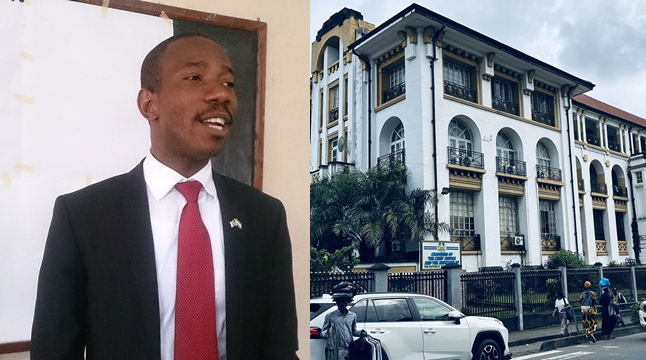I was present at the High Court No.1 on Wednesday 7th February 2024, to witness as usual the Treason trial between Amadu Koita Makalo and eleven others versus the state. As soon as the twelve-man jury was selected, the court registrar began reading a summary of the charges against the accused.
During the reading, one particular charge caught my attention – “the misprision of Treason.” This charge took my mind back to the legal analysis conducted last week by a renowned and senior lawyer in the country, Francis Gabidson, regarding this specific law.
According to lawyer Gabidson, this law should not exist in Sierra Leone’s legal books, and he cited several past cases that support his argument that the law is redundant. He believes that Sierra Leone, as a country within the Commonwealth, should not still be discussing misprision of treason.
Mr Gabidon concluded by stating that almost all countries in the Commonwealth have abolished the offence of misprison of treason in their laws, making Sierra Leone the only country that still retains this offence within the English Commonwealth. Therefore, the issue of misprision should now be considered obsolete
Meanwhile, the arrest and charging of Bai Mahmod Bangura, Sargent Salifu Kamara, ASP Ibrahim Sesay and Inspector Halima Hassan Bangura should raise questions about the application of a seemingly defunct law. The charges brought against them fall under the offence of misprison of treason.
This article aims to explore the background of the case, shed light on the nature of the law, and discuss the implications of charging individuals under a law that may no longer hold legal weight.
Understanding Misprision of Treason
Misprison of treason is a legal term that dates back to early common law systems. It refers to the act of concealing knowledge of treasonous activities or failing to report such activities to the authorities. In essence, it criminalizes the failure to disclose treasonous acts committed by others, making individuals who possess such knowledge potentially liable for prosecution.
The Origin of Misprision of Treason
Misprison of treason originated during a time when the state’s survival often depended on citizens’ loyalty and willingness to report any acts of treason. Its purpose was to discourage the concealment of treasonous activities and encourage individuals to come forward with information that could protect the integrity of the state. However, over time, the importance and relevance of this offence have diminished significantly.
Modern Legal Landscape
In many jurisdictions, the offence of misprison of treason has been rendered obsolete or has been replaced by more comprehensive legislation. The reasons for this change include advances in legal systems, the creation of specific laws to address treason, and a shift in societal attitudes towards whistleblowing and the reporting of criminal activities.
The Case of Bai Mahmoud Bangura and Others:
The recent charging of Bai Mahmod Bangura and others under the defunct law misprisionson of treason has sparked controversy and raised concerns about the misuse of outdated legislation.
The state might argue that the law remains valid until it is formally repealed and that individuals should be held accountable for their failure to report treasonous activities. They believe that the charges send a strong message about the importance of loyalty and national security.
Implications and Conclusion
The case of Bai Mahmod Bangura and others charged with misprision of treason highlights the need for a critical examination of outdated laws. While the law may technically remain in effect until repealed, its application in modern times raises questions about its relevance and potential for misuse.
As legal systems evolve, lawmakers and society as a whole need to reevaluate the necessity and effectiveness of laws that may no longer serve their intended purpose. The case also emphasizes the importance of striking a balance between protecting national security and safeguarding individual rights, including freedom of expression and the right to dissent.
In conclusion, the charging of Bai Mahmod Bangura and others with misprision of treason under a defunct law brings attention to the need for legal reform and the careful consideration of outdated legislation. As discussions surrounding this case continue, it is crucial to ensure that justice is served, and that the law is applied in a fair and just manner in line with the values and principles of a democratic society.


 2 Comments
2 Comments









Comment(s)
Disclaimer: Comments expressed here do not reflect the opinions of Sierraloaded or any employee thereof.